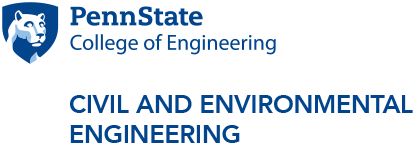Women Advancing River Research: Nicole M. Gasparini
The recording for this seminar is now available
River processes in landscape evolution models: Possibilities for the next decade
Abstract: When Gasparini started building landscape evolution models approximately 25 years ago, their application was rare and skepticism of their results was the norm. Today, field, flume, and remote sensing results are frequently coupled with numerical modeling studies. Conveniently, as model application becomes more common, the capability of our models has increased, and the possibilities for future studies are vast. In this talk, Gasparini will highlight a few topics that her current and former graduate students have worked on that she finds particularly exciting for future model applications. The first part of the talk will focus on coupling flow hydrographs with fluvial incision patterns. The second part of the study will focus on using drone imagery to infer controls on fluvial processes and possibilities for using numerical models to better understand these processes. The modeling results that she will present are made possible with the Landlab modeling toolkit, an open-source Python library for modeling surface processes. She encourages all listeners to download Landlab and start modeling!
Biography: Nicole M. Gasparini is an associate professor in the Department of Earth and Environmental Sciences at Tulane University. Her research explores how landscapes evolve over different spatial and temporal scales. She is a co-developer of CHILD and Landlab, two widely used numerical tools for modeling surface processes. She and her team use field observation, numerical landscape simulation, remotely sensed data, and other data collected by collaborators and government agencies to explore questions that intersect hydrology, tectonics, and sedimentology, with geomorphology at the core.
Projects that her research team are currently working on include: source-to-sink sediment routing in northeast Sicily; the impacts of rock properties on landscape evolution in the Guadalupe Mountains, New Mexico and Texas; the impacts of weathering rates on erosion rates in the Rio Blanco watershed, Puerto Rico; exploring controls on water table levels in coastal Louisiana; and quantifying flow characteristics and (the lack of) stationarity in perennial and ephemeral rivers.
Gasparini is originally from Buffalo, NY, and went to The University at Buffalo to earn bachelor's degrees in applied math and physical geography. She completed her master's and doctoral degrees at the Massachusetts Institute of Technology in the Department of Civil and Environmental Engineering. After completing her Ph.D., Gasparini held two postdoctoral positions: one as the Bateman Postdoctoral Fellow at Yale University in the Department of Geology and Geophysics and one at Arizona State University in the School of Earth and Space Exploration. Gasparini also spent a year in Washington, D.C., as the Geological Society of America AAAS Congressional Fellow, working as an aide in the office of then-Congressman Edward Markey. Her service activities include mentoring scientists at all career stages, co-chairing the Terrestrial working group of CSDMS (Community Surface Dynamics Modeling System), advising the Tulane GeoLatinas Local Team and active involvement with the international GeoLatinas organization, developing educational materials and training scientists in the opensource Landlab modeling toolkit, and regularly organizing award nomination packages for underrepresented geoscientists.
Additional Information:
Lecture begins at 11 a.m. U.S. Eastern time (New York) and will be followed by a question and answer session. Registration is required prior to the free event.
Event Contact: Tim Schley




